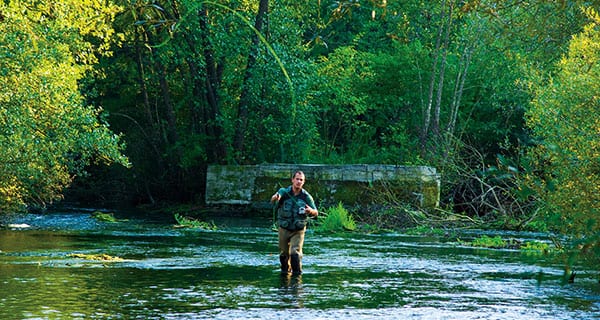Why do some fly casters seem to catch more fish than others? It is a combination of things, obviously, but given the same fly and fishing the same water, some fly anglers just catch more. Want to know why? I guess you already know the answer due to the title of the article. Do you want to know how? Here are some tips for catching more fish using accuracy as the focus.
Let’s start with the target. Knowing where you want the fly to land before you start your casting sequence is very important. If you are wanting to land the fly next to a tree stump, just past the lily pad, just short of the bank in a little black piece of water, look only at the black piece of water. Narrow your focus down to the size of an average fly box. Now, look at it again and visualize the path the line will need to take to get there. Picture the loop size and plane off vertical, trajectory and distance needed to drop it in that little black piece of water. Now start your cast.
We don’t always have the luxury of making the first back cast straight away from the target, but we can make the first forward cast to it. Watch that loop. Was it off to the left, right, too high a trajectory, or too short? This is our gauge on what to do with the back cast and forward cast coming up. Make your adjustments while in your back cast, and then pick up your target with a strong visual focus. As you focus on the target, you will be seeing the loop forming as the line approaches. If it is not what you want, adjust in the back cast and visualize the line path to the target before you start your next forward cast.
If you really want to get your fly up under the trees, or right in front of the fish’s nose, or between two logs, you have to see the cast develop before you make the cast. Observe the line path as you focus on the target, but really see the target. This is no easy task, but most things worthwhile are not easy. Train you brain to focus, and the casting will become almost as much fun as catching a fish.
You can always challenge yourself with a cast, but you can’t always count on the fish to strike.
